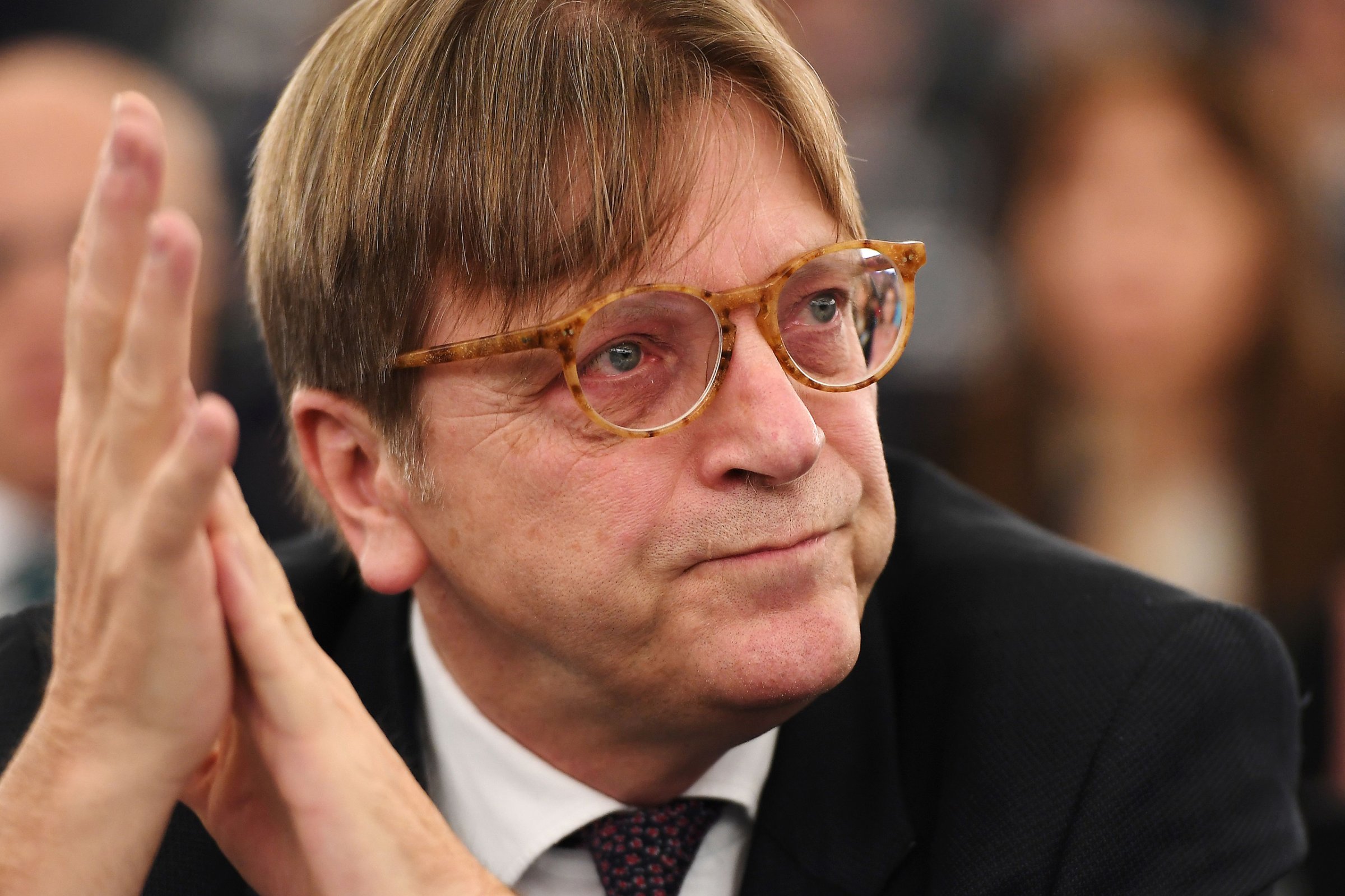
When Theresa May confirmed in a Tuesday speech that Britain would be seeking a “hard Brexit,” few people were likely listening more intently than Guy Verhofstadt.
The former Belgian Prime Minister was last year appointed as the chief Brexit negotiator for the European Parliament, which must approve any deal struck between the European Union (E.U.) and the British government. He has become one of the key voices in Europe defending the supranational project against what many see as the beginning of its disintegration.
An outspoken Member of the European Parliament (MEP), Verhofstadt this month publishes a book outlining his vision for the E.U., Europe’s Last Chance: Why the European States Must Form a More Perfect Union. In it, he argues that the E.U. is doomed to failure unless its member states integrate further – a position which puts him at odds with the populist forces that helped drive the Brexit vote.
In an interview with TIME, he reflects on how the E.U can meet the challenges of rising populism, nationalism and euro-skepticism, and reacts to May’s speech, in which she confirmed that Britain will leave the E.U.’s single market, but said she wanted to continue to be on favorable trading terms with the rest of Europe:
Are you encouraged by Theresa May’s Brexit speech, or do you still feel there are unrealistic expectations in Westminster about what can be achieved?
Theresa May has provided some much-needed clarity on the fact that she wants a hard Brexit. But you’re right that there were a lot of unrealistic expectations in the prime minister’s speech. We will not let the U.K. leave the union only to cherry-pick its way back into our common market for example. What’s also an unproductive negotiation tactic is the threat to turn Britain into a tax haven. It will hurt British people and damage Britain’s credibility in the international community.
Do you think Britain’s experience so far will deter other countries from going down the same path?
When you see the polls, yes. Support for an exit is falling in the Netherlands from nearly 50% to 30%, that’s quite impressive. You see it everywhere. The shift you see is very clear, and that can only be an encouragement to do this fundamental reform of the union.
So you think Brexit could end up being a good thing for the E.U.?
It is a unique opportunity in the coming two-and-a-half years not only to talk about Brexit in a defensive way, but also what are the existential reforms needed by the European Union to fix that fundamental problem of the political institutional deadlock which we are in.
Your new book is called Europe’s Last Chance. That’s quite a pessimistic title. Is it really that bad?
Brexit is the most evident sign of it being at the brink. The problem is political, it’s institutional. The E.U. is not a union – this is a loose confederation of member states based on unanimity rule, meaning we react always too little too late. There is a need for a general overhaul of the union, and to be conscious of the fact that this will lead us to catastrophe, or disintegration of the union if we don’t.
What’s the solution?
We need a different system. Instead of a confederation based on unanimity rule, where the governing of Europe is given to Prime Ministers and Heads of States who are deciding by unanimity based on their national interests, you need to create a federal system.
You argue for a United States of Europe mirroring the U.S. model of governance. What parallels can you see?
An American would laugh if Florida could opt out of the Border and Coastguard, or if Vermont could say ‘I won’t participate in the FBI’, or California could stick to the old Spanish peseta. Everybody would say you are nuts. But that is exactly what is happening [in the E.U.].
How do you sell this idea of federalism when the public seems to want less E.U. involvement in their day-to-day lives, not more?
You need leaders who are developing such a vision. In the past, we had that, the Mitterrands, the Schumans, the Delors of the world. That is what we need to establish again. Most of our leaders are falling into the nationalist and populist rhetoric.
Do you have any hope that such leaders will emerge?
We have so many crises, we have so many enemies, that finally even the most Euroskeptic national leaders have to recognize that only in a reformed European Union can we withstand that. With politicians, they have to have their backs against the wall before they act. But I think that we have enough now – we are enough with our backs against the wall to say, OK., let’s go forward.
You have spoken of “a ring of autocrats,” including Russia’s Vladimir Putin and Turkey’s Recep Erdoğan, surrounding Europe. How must the E.U. respond?
Europe has only one thing to do: to put its own house in order as fast as possible and be ready for this more insecure world.
More Must-Reads from TIME
- Donald Trump Is TIME's 2024 Person of the Year
- Why We Chose Trump as Person of the Year
- Is Intermittent Fasting Good or Bad for You?
- The 100 Must-Read Books of 2024
- The 20 Best Christmas TV Episodes
- Column: If Optimism Feels Ridiculous Now, Try Hope
- The Future of Climate Action Is Trade Policy
- Merle Bombardieri Is Helping People Make the Baby Decision
Contact us at letters@time.com